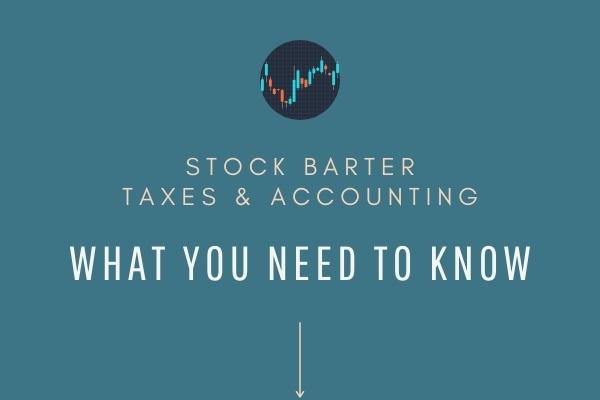When companies issue shares of stock as payment for services instead of cash, tax professionals refer to the process as stock barter. It is a complicated method requiring the recipient and the issuing company to consider how to tax stock options or record the transaction in accounting. If you gave shares in exchange for equipment, land, or a service provided by a business or an individual, you must follow the specific IRS laws and GAAP guidelines. If a corporation issues stock shares to a client, the entity must account for the transaction and report the information to the IRS by filing a 1099-B Form.

Barter Exchange Explained
The IRS explains a barter exchange as an individual or entity with clients or members that barter property or services in a trade for stock shares. If you trade services without a contract with a barter exchange, the Internal Revenue Service does not require filing a 1099-B Form. You may need to file a 1099-Misc Form and provide a copy to the recipient and the State Tax Department if your state collects taxes. Some of the exceptions for filing Form 1099-B of barter exchanges include:
- You have fewer than 100 transactions during the year of exchanges.
- Foreign individuals based on Section 1.6045-1(g)(1) of government regulations.
- Any exchanges with an FMV (fair market value) of less than $1.00
Individuals who are non-corporate members or clients involved in a barter exchange must separately report each transaction on a 1099-B Form and on an aggregate basis. For a barter exchange, you would enter the gross amounts received by a client, including the FMV of the property or the services rendered. Additionally, the FMV of any trade credits or scrip credited to the accounts of the members or clients you should enter as a barter exchange. As mentioned earlier, US states may require you to send a copy of the 1099-B Form to your state tax agency and provide a copy to the recipients to file on state income tax returns.
What You Should Consider With Stock Options Tax Treatment
Determining the fair market value of a stock barter transaction’s most recent share market price is the first thing you must do at closing. You can quickly lose money if you avoid reporting the transaction on a 1099-B, Schedule D, or 8949 federal tax form or because of errors in accounting. For your business or personal taxes, it is significant to claim the amount of income at the FMV when receiving shares in exchange for services.
How to Treat and Report Bartering Income
Treating the barter exchange transaction will require setting up a barter exchange account as an asset and a bartering revenue account as income. When reporting bartering income, it should include the fair market value of services received from the transaction in the year of the transaction receipt. As a recipient, you will report the income on Schedule C of the 1040 Form for profits or losses from the shares of stock.
Types of Stock Options
The two types of stock options are the following:
- Statutory
- Non-statutory
Granting an option under an employee stock purchase plan, incentive stock option, or ISO plan is a statutory option. A non-statutory stock is not an option granted under the ISO or employee stock purchase and does not have an FMV. When you exercise the option, you must include the income of the fair market value received on it after deducting the amount you paid. If you sell the stock option, it will result in taxable income or loss on your federal income tax return.
Stock Options Tax Rate
If you receive an option to purchase stock as payment for your services, you may have income after receiving, exercising, or disposing of the stock option. The federal tax rate will range from 10 percent to 37 percent for the 2022 tax year, and the capital gains rate is 15 percent to 20 percent.
Issues Associated With Stock Bartering Transactions
One common issue relating to stock barter transactions includes double-counting when exercising non-qualified stock options. If the transaction is on your W2 tax form, be cautious not to report it again, or you may be double taxed. Sometimes taxpayers may report the transaction using the wrong tax basis for a non-qualified option. Other issues include ignoring the alternative minimum tax for an incentive stock option and failing to keep track of exercised stock options, tax withholding, and the FMV.
At Fusion, we have accounting and tax professionals who can help you track your stock barter transactions and ensure reporting accuracy, to help you save money. Schedule a discovery call to find out more.
This blog article is not intended to be the rendering of legal, accounting, tax advice or other professional services. Articles are based on current or proposed tax rules at the time they are written and older posts are not updated for tax rule changes. We expressly disclaim all liability in regard to actions taken or not taken based on the contents of this blog as well as the use or interpretation of this information. Information provided on this website is not all-inclusive and such information should not be relied upon as being all-inclusive.

